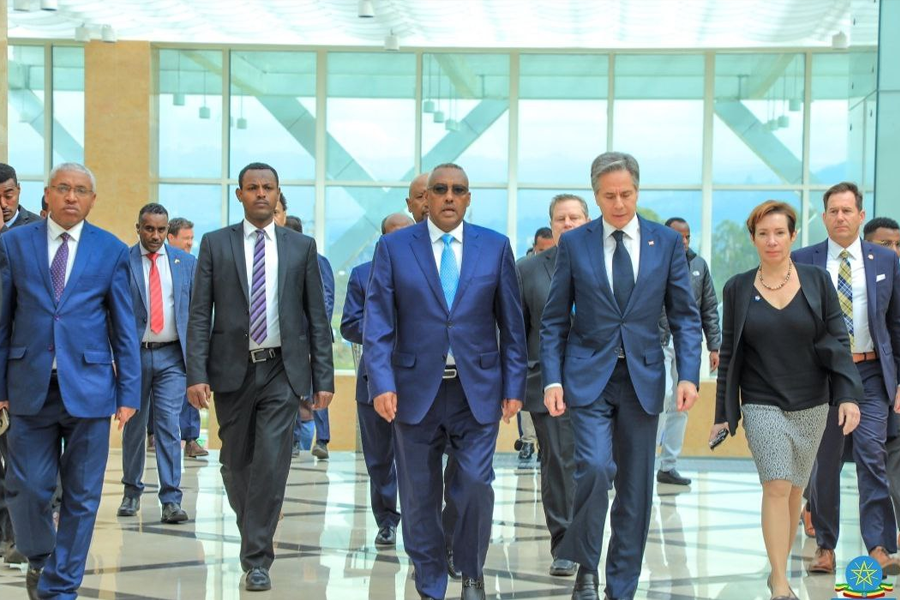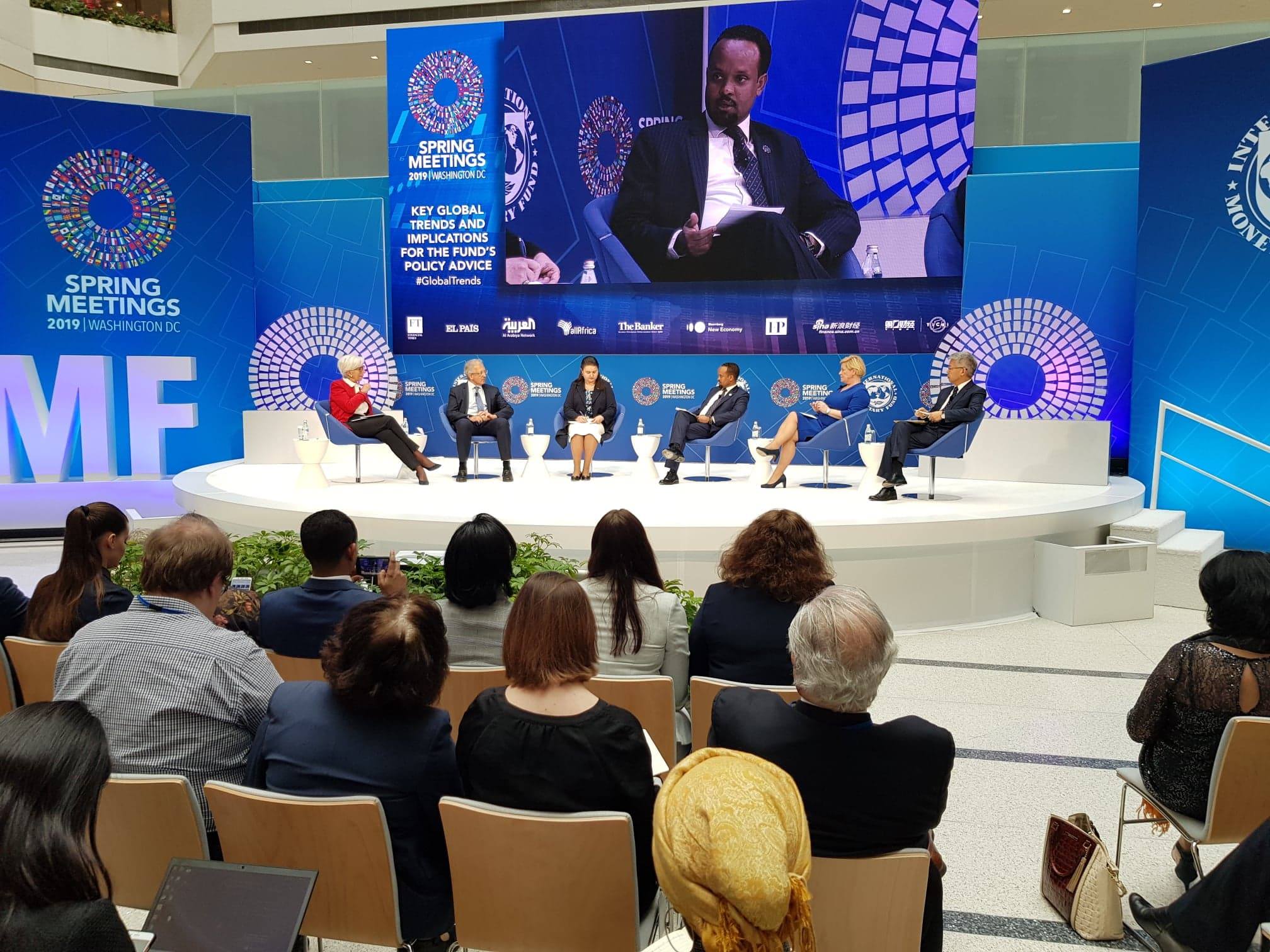
Fortune News | Aug 22,2020
Jan 31 , 2021
By Christian Tesfaye
There is an unintended consequence to armed conflicts and wars - internationalised or not. They can serve as great lessons, especially of the cost of violence and the need for empathy. Sometimes, this lesson does not come as evident, but eventually, it becomes clear as daylight for those sensible enough.
Take World War I. It was a function of stunted diplomacy, fought out of European leaders' delusion that the "balance of power" order of the 19th century could be carried over into the 20th. They were direly mistaken. A prince's assassination led to enough dominos falling that a war in scale hitherto unseen was launched. Close to 22 million people died. There was also the massacre of Jews in Russia and Armenians in what was then the Ottoman Empire, according to historical sources.
What did the world learn from this?
Surprisingly, it was a racially insensitive Southerner from the United States that was the more clearheaded about it. Woodrow Wilson was a strong supporter of an international order underwritten by a multilateral institution known as the League of Nations. An idealist, if not naive, Wilson introduced his famous Fourteen Points speech, underlining that “mutual guarantees of political independence and territorial integrity to great and small states alike” should be the order of the world.
It was not to be. The victors moved to humiliate the loser, Germany; the United States, already the most powerful country at that point, shunned the League; and the multilateral institution belied its ineffectiveness after Japan invaded China’s Manchuria and Italy occupied Ethiopia.
By the 1930s, the economic devastation of the Great Depression and national resentment created an environment that served as a cesspool of populism, nationalism and fascism. From Germany, the cruelest of these gave itself the name Nazi, stole the swastika as its icon, declared the Aryan race superior, and established a totalitarian government. The National Socialists in Germany started a war that killed about 70 million people, including the extermination of two-thirds of Europe’s Jews.
This time, thankfully, the atrocity was too deep, too graphic and too global. More than that, it ended with the United States dropping atomic bombs in two cities of Imperial Japan - this was despite a bombing campaign that had burned most cities of Japan to the ground. As cynical as it sounds, it was the possibility of mutually assured destruction that was the main driving force in pushing the superpowers toward agreeing to international order. It was one where conflict-stricken countries are assisted in reconstruction; development was supported through multilateral institutions; and it was declared that “never again” would the world look on idly as atrocities of mass scale are committed.
It was only half successful. Its most tremendous success was avoiding any war between superpowers, which, had they occurred, may have ended human civilization as we know it.
But wars never went away, least of all in Ethiopia. During the Dergue years, civil war raged for 17 years. It stunted our economic growth, saw a genocidal urban campaign (a politicide) in the form of the Red Terror, and allowed one million people to perish from famine in the northern part of the country.
Did we learn a lesson? As we came out of the war in 1991, did we say “never again”? Never again should our people suffer, not just death, but the deprivations of the developmental repercussions as more resources went into buying bullets and tanks instead of food?
We did not. We took a respite for some seven years and fought with a country barely half a decade old, Eritrea. An estimated 70,000 to 100,000 died - the figure is debatable, because life in armed conflict becomes so valueless, it is often hard to account for all of the losses.
This should have taught us a lesson. War is terrible. Unfortunately, it did not. An armed conflict erupted last November between the forces of the federal and Tigray regional governments. Everyone throws around “thousands” as an estimate, but little is known. Atrocities were committed, most notably in Mai-Kadra, and according to refugee testimonials, cities like Adigrat and Axum as well. About 4.5 million people are estimated to need humanitarian aid. The government says it is catering to the need. Humanitarian agencies say that it is not enough.
Have cool heads finally prevailed, considering how vivid and recent this armed conflict has been?
It does not seem to be. Everyone is pointing hands. The political space is not being reconsidered as a culprit for the failures of the past three years. No one is assuming responsibility. Everyone believes that it is everyone else’s fault.
The victors believe that their victory is not decisive enough. The losers believe the problem was that they did not have sufficient arms. Few with voices audible enough are willing to acknowledge that the very use of violence as a means to advance a political agenda is what perpetuates this tragedy.
We have learned nothing.
PUBLISHED ON
Jan 31,2021 [ VOL
21 , NO
1083]


Fortune News | Aug 22,2020

Viewpoints | Feb 27,2021

Radar | Aug 28,2021

Radar | Dec 19,2018

Radar | Aug 10,2019

Radar | Mar 18,2023

Radar | Jul 18,2021

Fortune News | Apr 13,2019

Radar | Apr 30,2024

Radar | Feb 05,2022

My Opinion | 131584 Views | Aug 14,2021

My Opinion | 127940 Views | Aug 21,2021

My Opinion | 125915 Views | Sep 10,2021

My Opinion | 123539 Views | Aug 07,2021

Dec 22 , 2024 . By TIZITA SHEWAFERAW
Charged with transforming colossal state-owned enterprises into modern and competitiv...

Aug 18 , 2024 . By AKSAH ITALO
Although predictable Yonas Zerihun's job in the ride-hailing service is not immune to...

Jul 28 , 2024 . By TIZITA SHEWAFERAW
Unhabitual, perhaps too many, Samuel Gebreyohannes, 38, used to occasionally enjoy a couple of beers at breakfast. However, he recently swit...

Jul 13 , 2024 . By AKSAH ITALO
Investors who rely on tractors, trucks, and field vehicles for commuting, transporting commodities, and f...

Jun 28 , 2025
Meseret Damtie, the assertive auditor general, has never been shy about naming names...

Jun 21 , 2025
A well-worn adage says, “Budget is not destiny, but it is direction.” Examining t...

Jun 14 , 2025
Yet again, the Horn of Africa is bracing for trouble. A region already frayed by wars...

Jun 7 , 2025
Few promises shine brighter in Addis Abeba than the pledge of a roof for every family...

Jun 29 , 2025
Addis Abeba's first rains have coincided with a sweeping rise in private school tuition, prompting the city's education...

Jun 29 , 2025 . By BEZAWIT HULUAGER
Central Bank Governor Mamo Mihretu claimed a bold reconfiguration of monetary policy...

Jun 29 , 2025 . By BEZAWIT HULUAGER
The federal government is betting on a sweeping overhaul of the driver licensing regi...

Jun 29 , 2025 . By NAHOM AYELE
Gadaa Bank has listed 1.2 million shares on the Ethiopian Securities Exchange (ESX),...